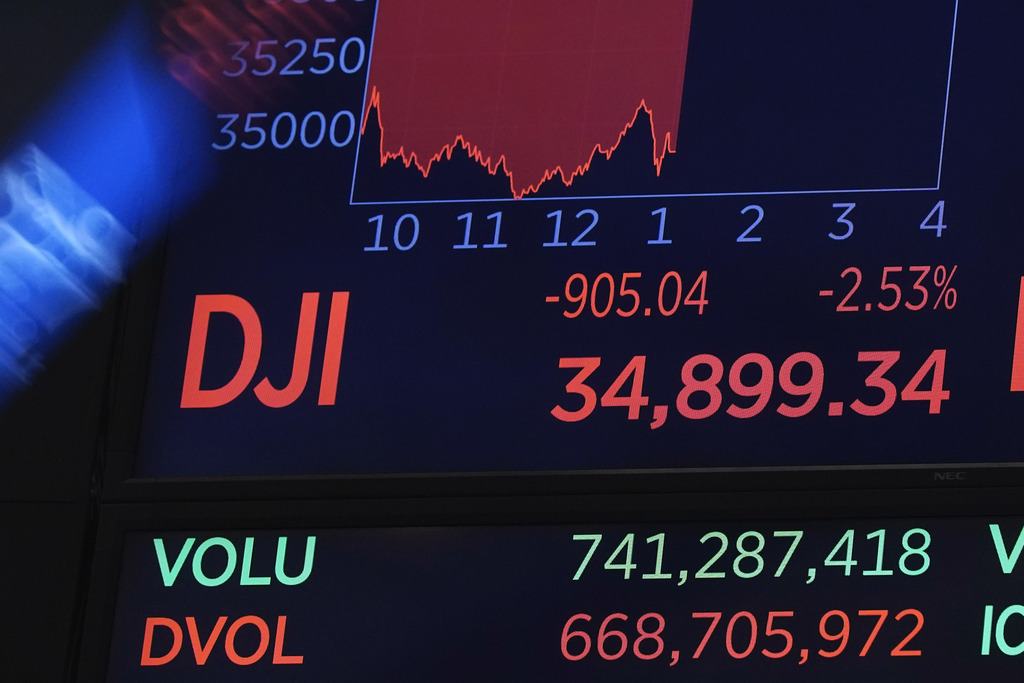Andreea Papuc | Bloomberg
Stocks looked set to fall in Asia on Monday amid uncertainty about how the omicron coronavirus strain will impact global economic reopening. Currency markets stabilized after Friday’s volatility.
Equity futures for Japan, Australia and Hong Kong pointed lower. The S&P 500 last week had its worst post-Thanksgiving performance since 1941, oil’s slump topped 10% and the yield on 10-year Treasuries slid the most since March 2020.
The dollar was steady against the yen and euro in early trading. The currency of South Africa, where the variant was identified, rose as much as 0.9% against the greenback. Bonds in Australia and New Zealand climbed.
Two South African health experts — including the doctor who first sounded the alarm about omicron — suggested the variant is presenting with mild symptoms so far. The World Health Organization urged caution, saying it will take time to assess the strain.
Traders last week pushed back the expected timing of a first 25-basis-point rate increase by the Federal Reserve to July from June. Fed Bank of Atlanta President Raphael Bostic played down economic risks from a new variant, saying he was open to scaling back asset purchases at a faster pace to keep inflation in check.
[ns-video id=”44effd8b96c00f1f9d2fd65ebf9c876″ publisher=”21905″]
Investors are trying to work out if the omicron flareup ends up being a relatively brief scare that markets eventually rebound from, or a bigger blow to the global economic recovery. The prospect of tighter monetary policy to tackle price pressures was already complicating the outlook.
“We really need some more answers to figure out the impact on growth,” said Priya Misra, global head of rates strategy at TD Securities. “Risk assets are pricing in uncertainty.”
Moderna Inc.’s chief medical officer said a reformulated shot to combat the new strain could be available early in the new year.
Emerging markets will be in the spotlight after taking some of the biggest hits from the virus jitters. In China, a Peking University study predicted the nation would face a major Covid surge on a scale beyond anything any other country has yet seen if it were to reopen in a similar manner to the U.S.
In cryptocurrencies, Bitcoin steadied over the weekend and was trading around $56,400, after sinking below $54,000 on Friday.
Peter Tchir, head of macro strategy at Academy Securities Inc., said he’s watching emerging-market currency and bond markets, and Bitcoin, “as leading indicators of potentially more risky asset unwinds to come.”
For more market analysis, read our MLIV blog.
Some of the main moves in markets:
Stocks
- The S&P 500 fell 2.3% Friday
- The Nasdaq 100 fell 2.1% Friday
- Nikkei 225 futures fell 2.8% earlier
- Australia’s S&P/ASX 200 Index futures dropped 1.4% earlier
- Hang Seng Index futures lost 1.2% earlier
Currencies
- The Japanese yen was at 113.43 per dollar
- The offshore yuan was at 6.3970 per dollar
- The Bloomberg Dollar Spot Index fell 0.3% Friday
- The euro was at $1.1306
Bonds
- The yield on 10-year Treasuries declined 16 basis points to 1.47% Friday
- Australia’s 10-year bond yield fell two basis points to 1.72%
Commodities
- West Texas Intermediate crude fell 13% to $68.15 a barrel Friday
- Gold rose 0.8% to $1,802.59 Friday
More stories like this are available on bloomberg.com
©2021 Bloomberg L.P.










